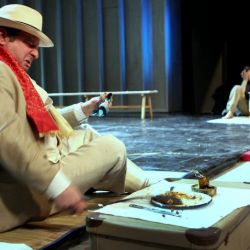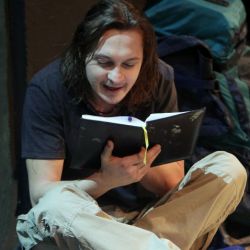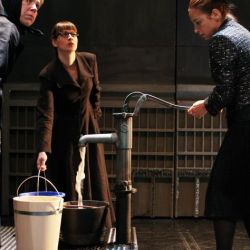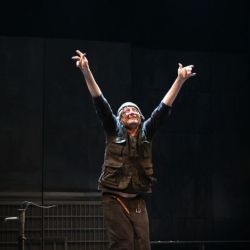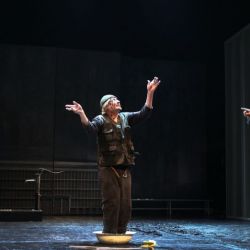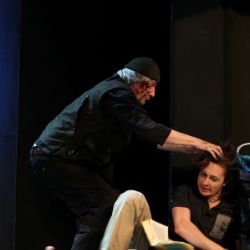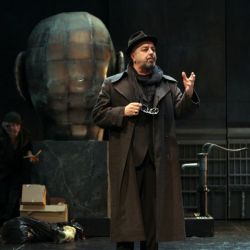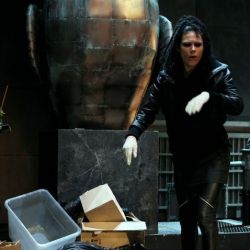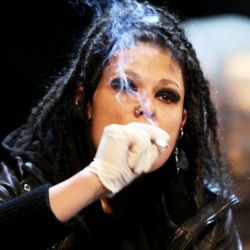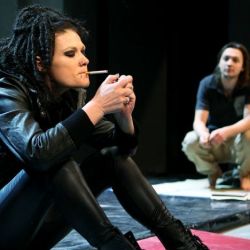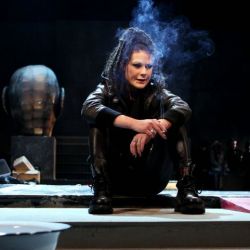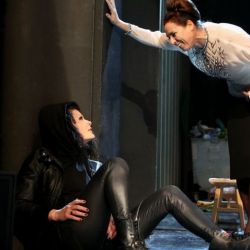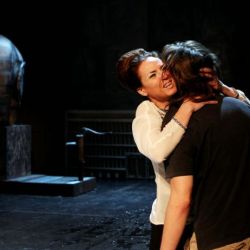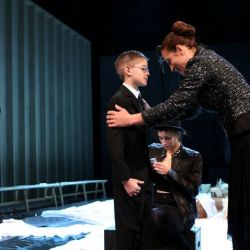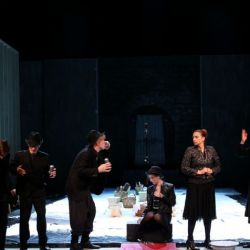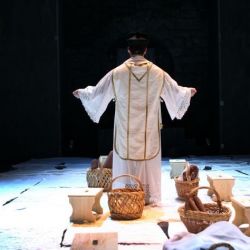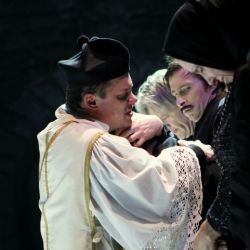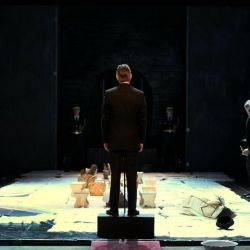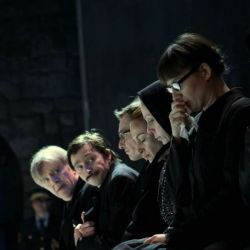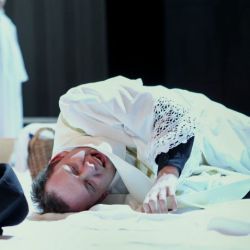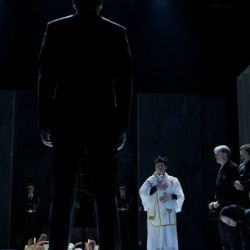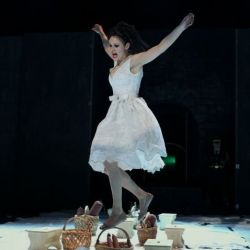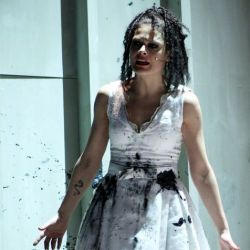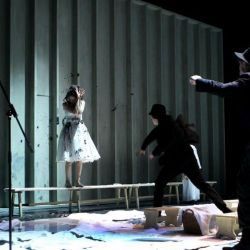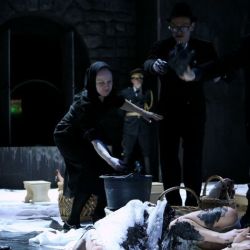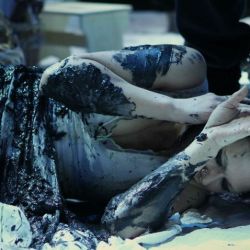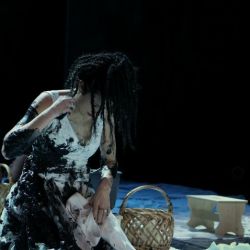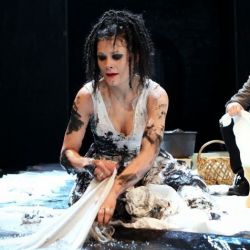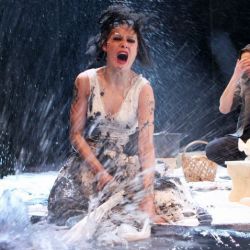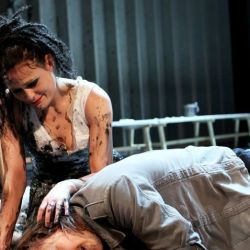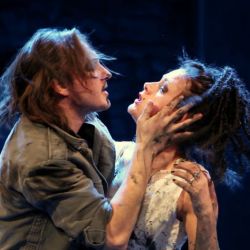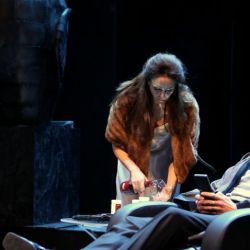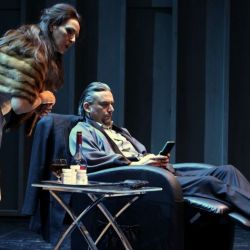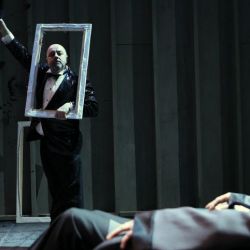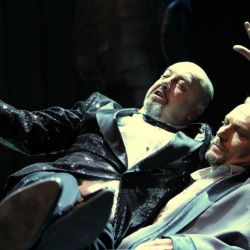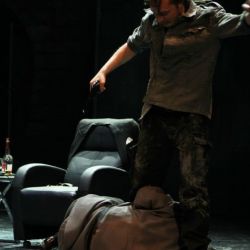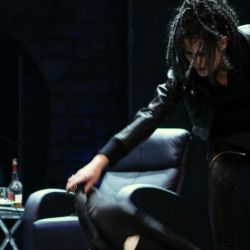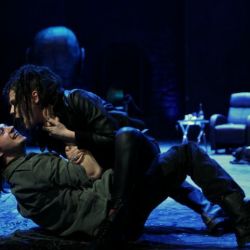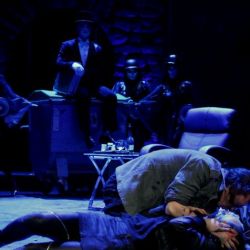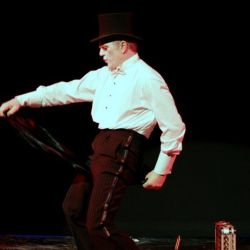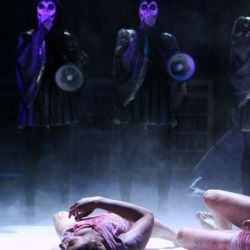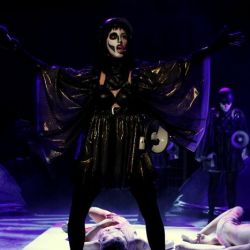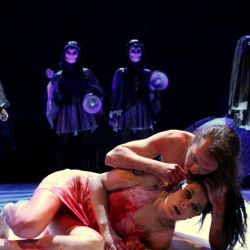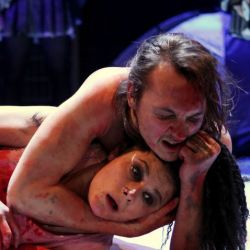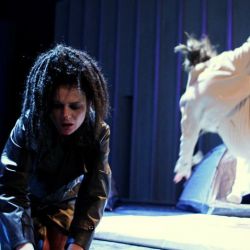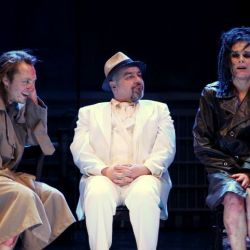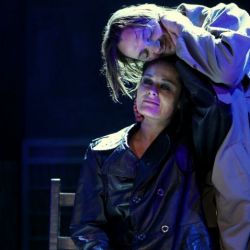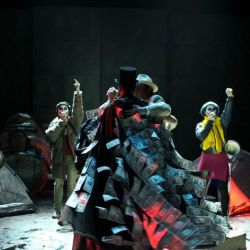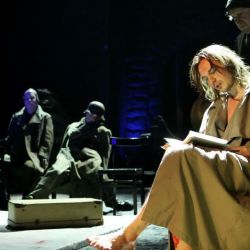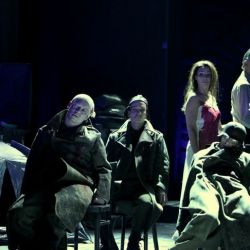| Translator Draga Ahačič Author of the adaptation, director and dramaturg Janez Pipan Set Designer Marko Japelj Costume Designer Leo Kulaš Composers Mitja Vrhovnik Smrekar, Damir Avdić Language Consultant Jože Volk Lighting Designer Andrej Hajdinjak Assistant Director Jaša Koceli |
Cast Zeus Renato Jenček Orestes Blaž Setnikar Aegisthus Rastko Krošl The Tutor Igor Žužek Electra Pia Zemljič Clytemnestra Lučka Počkaj The Old Woman; the Erinye Manca Ogorevc The Woman; the Third Erinye Barbara Medvešček The Young Woman; the Second Erinye Tanja Potočnik Another Young Woman; the First Erinye Nina Rakovec The First Man; the Dead Man David Čeh The Second Man; the Dead Man Aljoša Koltak The Third Man; the Cocoon, later The Butterfly Branko Završan The High Priest; the Dead Man Damjan M. Trbovc The Child; the Altar Boy Matevž Sluga (guest appearance). The Idiot Zvone Agrež Palace Guards Dani Les, Svetislav Prodanović (guest appearances). |
|
Opening 17 February 2012
Janez Pipan wishes to dedicate his production of The Flies to Peter Stein and Tadeusz Kantor. |
The opening Sartre's poem from his war diaries (Les carnets de la drôle de guerre; septembre 1939 - mars 1940) translated by Aleš Berger.
The song Non Monsieur, je n'ai pas vingt ans by Henri Gougaud, Gérard Jouannest and Juliette Gréco translated by Branko Završan.
The extract from the novel Clerambault by Romain Rolland translated by Janko Moder.
Men's Costumes Made by Franjo Tivatar.
The producers wish to thank SOLINE Pridelava soli d.o.o. (Salt Production Co. Ltd.) that manages Secovlje Salina Nature Park where salt has been harvested in accordance with traditional methodes for 700 years.


